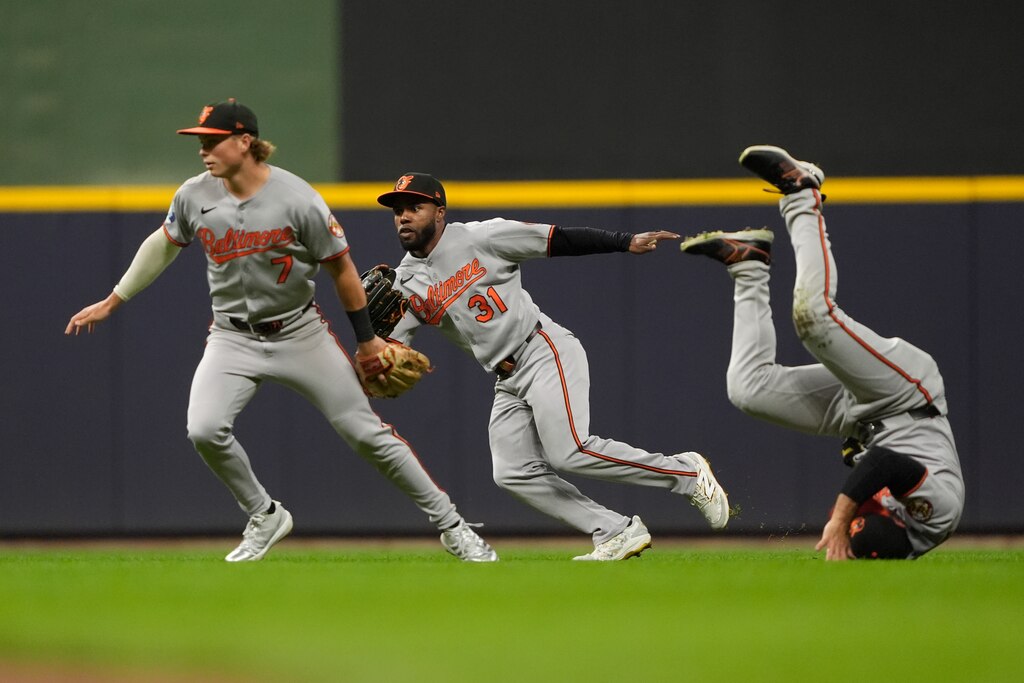When a team loses two-thirds of its first 48 games, it’s hard to imagine a scenario in which the remainder of the season means much. Even the expanded playoffs feel so far-flung an idea that the mention of them is kind of fanciful.
Yet these Orioles are in a unique position, especially relative to other iterations of this franchise that were in this position. In 2018, it was so clearly the end of an era that the team’s pending dissolution was the only focus. In the ensuing years, the losing was expected, so no one much cared if it continued apace.
This year will be different. As much as general manager Mike Elias says the entirety of the baseball operation is under review, the whole idea that he needed to change managers to begin with stems from the notion that this team should be better than it is.
If health, first and foremost, helps bring that improvement about, with the change of voice at the top along with it, how much reevaluation will actually occur? And, with the knowledge that 2026 will boast the same strong core and a finally healthy starting rotation, how extreme will the reactions to the season be if the next few months are meaningfully different than the first two?
However you look at it, this is going to be weird to watch. Typically, weird is fun. I’ll stop short of that designation for this season, but the point stands.
It might not feel like this Orioles season can go in any direction at this point, but there are basically three paths. The narrowest one is that this team rips off a few good months and ends up back in the playoff mix where it belonged all along. The middle, perhaps widest avenue to the end of the season, is the Orioles play better and maybe even get to .500 but are undermined by what’s happened to date. There’s also the possibility that they keep losing and losing, which absolutely cannot be ruled out, given what we’ve seen.
Read More
In any scenario, there’s a good chance it will mean nothing because all these losses on their record are too much to overcome. That will mean, in many respects, the successes over the course of a long season will be moot for the good parts coming when the stakes were lowest.
How much will a Jackson Holliday breakout season be worth if it’s a lost one for the club? Would an Adley Rutschman turnaround feel good if the lows he’s bouncing back from contributed to the team’s poor start? And, if the rotation stabilizes, who will much care given how it undermined things in April and May?
The reality will probably be more mixed, which would be similarly strange to evaluate through the lens of a season that feels forsaken before Memorial Day. Any meaningful underperformance, be it from a core player like Rutschman or anyone else, from here on will be in the context of a season that never got off the ground. The same way anything good that happens will be in this low-stakes scenario of mostly meaningless baseball, most things that don’t go as well as expected will have the built-in reasoning that it was influenced by the poor play around it.
What will be most fascinating to watch is if the Orioles don’t recover and just keep losing at such an unreasonable pace. Twice in the last seven months — once when the Orioles were eliminated from the playoffs and again this week — we’ve heard Elias say there was going to be a holistic review of everything the Orioles do.
Without knowing the intricate details of every process the Orioles have, the offseason one seemed to focus a lot more on personnel than anything else, with new hitting coaches, strategy and advanced scouting personnel, a new athletic trainer and other fresh voices on the coaching staff. Cody Asche, the new hitting coach, said this month that the processes were more or less the same as in years past, so we know the extent of changes there.
The reasoning is simple: The Orioles believe in a lot of what they did and have a lot of results to demonstrate it has worked well. Further mounting evidence that they need to change, in the form of more losing, will challenge that belief to a point that they’ll have no choice but to pivot significantly.

Maybe they planned to make their big long-term rotation investment this winter anyway, once they knew how Kyle Bradish, Tyler Wells and I suppose Grayson Rodriguez all recovered and came back to form. Maybe they abandon the offensive philosophy that yielded them a still-imposing core of homegrown hitters. Maybe one of the ownership group or front office decides on a whole new direction.
That basically will happen only if the losing continues apace, at least from my vantage point. I think there’s too much value within the organization on all the good that has happened and all the success it has built, on the field and off of it, to forsake it all over what has occurred this season.
The problem is any kind of improvement, from the most marginal to the improbably small chance this team still accomplishes something, isn’t going to be a convincing argument to stay the course. Some of the inevitable improvement we’re going to see from this team is going to be meaningless. Most of it will probably be more instructive for the future than we’ll care to admit in the moment.
It will all be skewed by what happened to this point, and that’s going to be incredibly hard to sort through in the moment. That goes for the team and the front office, the players themselves and all of us watching, too. It’s going to be weird. Hopefully in the fun way.




Comments
Welcome to The Banner's subscriber-only commenting community. Please review our community guidelines.